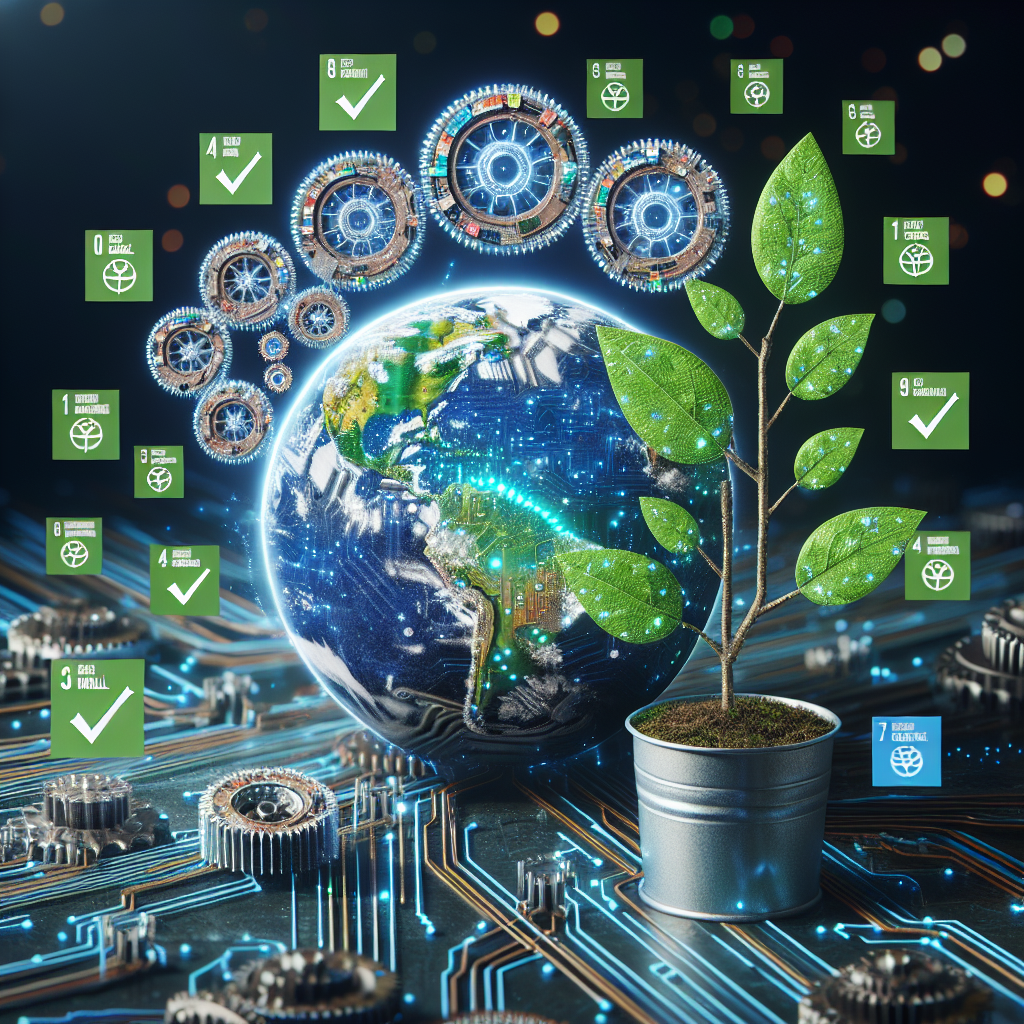The Impact of AI Automation on Sustainable Development Goals
Artificial Intelligence (AI) has the potential to revolutionize the way we approach sustainable development goals. With its ability to process large amounts of data, identify patterns, and make decisions in real-time, AI automation can help organizations and governments make more informed decisions that lead to positive outcomes for people and the planet.
AI automation can be used in a wide range of applications to support sustainable development goals. For example, AI can help monitor and analyze environmental data to track progress towards goals such as reducing greenhouse gas emissions or protecting biodiversity. It can also be used to optimize resource allocation, improve supply chain efficiency, and enhance disaster response efforts.
One of the key benefits of AI automation is its ability to increase productivity and efficiency. By automating routine tasks, organizations can free up time and resources to focus on more strategic initiatives that have a positive impact on sustainable development goals. This can lead to cost savings, improved performance, and better outcomes for both people and the planet.
Another important aspect of AI automation is its ability to enhance decision-making processes. By analyzing large amounts of data and identifying trends and patterns, AI can help organizations make more informed decisions that are based on evidence and data-driven insights. This can lead to better outcomes and more effective strategies for achieving sustainable development goals.
AI automation can also help address some of the key challenges facing sustainable development efforts. For example, AI can help identify and address inequalities in access to resources and opportunities, improve the delivery of essential services, and support the development of innovative solutions to complex problems. By harnessing the power of AI, organizations and governments can accelerate progress towards achieving sustainable development goals.
In order to realize the full potential of AI automation for sustainable development, it is important to address some key considerations. For example, there are concerns about the impact of AI on jobs and the workforce, as automation may lead to job displacement in some sectors. It is important to ensure that workers are equipped with the skills and training needed to adapt to a changing labor market and take advantage of new opportunities created by AI automation.
There are also ethical considerations to take into account when using AI for sustainable development. It is important to ensure that AI systems are developed and deployed in a way that is transparent, accountable, and respects human rights and privacy. This includes ensuring that AI systems are unbiased, fair, and do not perpetuate existing inequalities or discrimination.
Despite these challenges, the potential benefits of AI automation for sustainable development are significant. By harnessing the power of AI, organizations and governments can accelerate progress towards achieving sustainable development goals, improve decision-making processes, and address key challenges facing sustainable development efforts.
FAQs:
Q: How can AI automation help organizations achieve sustainable development goals?
A: AI automation can help organizations achieve sustainable development goals by increasing productivity and efficiency, enhancing decision-making processes, and addressing key challenges facing sustainable development efforts.
Q: What are some examples of how AI automation can be used to support sustainable development goals?
A: AI automation can be used to monitor environmental data, optimize resource allocation, improve supply chain efficiency, enhance disaster response efforts, and address inequalities in access to resources and opportunities.
Q: What are some of the key considerations when using AI automation for sustainable development?
A: Key considerations when using AI automation for sustainable development include addressing concerns about job displacement, ensuring that workers have the skills and training needed to adapt to a changing labor market, and addressing ethical considerations such as transparency, accountability, and fairness.
Q: What are the potential benefits of AI automation for sustainable development?
A: The potential benefits of AI automation for sustainable development include accelerating progress towards achieving sustainable development goals, improving decision-making processes, and addressing key challenges facing sustainable development efforts.

